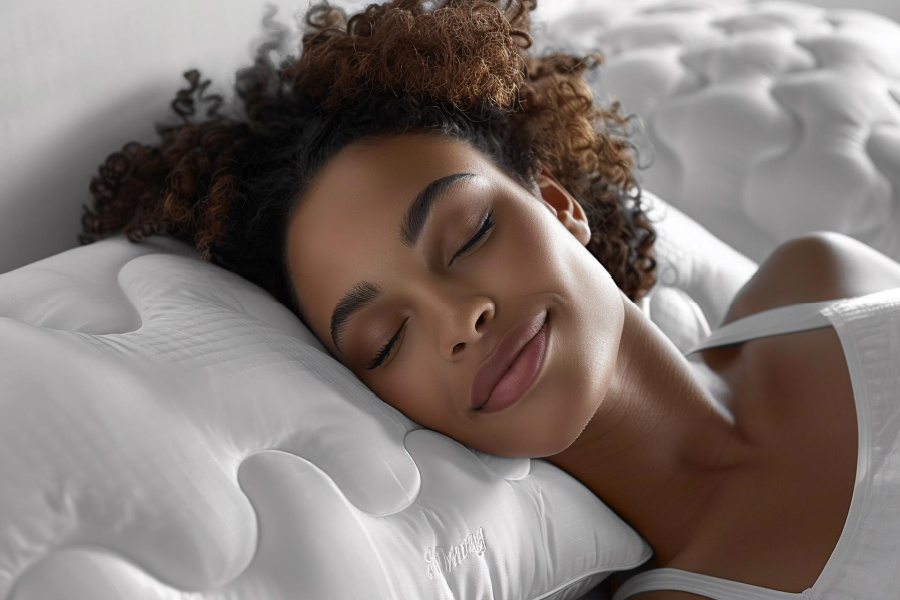n today’s fast-paced world, sleep often takes a backseat to our busy schedules. However, the importance of a good night’s rest extends far beyond just feeling refreshed in the morning.
One area where sleep plays a crucial role is in maintaining healthy, glowing skin. This article explores the intricate relationship between sleep and skin health, backed by scientific research, and offers practical tips for teenagers to develop good sleep habits.
The Science Behind Sleep and Skin Health
Our skin, the largest organ in our body, undergoes significant repair and regeneration processes during sleep. This nocturnal activity is essential for maintaining skin health and appearance. A landmark study published in the journal “Clinical and Experimental Dermatology” in 2015 provides compelling evidence for this connection.
The study, conducted by researchers at University Hospitals Case Medical Center, found that poor sleepers showed increased signs of skin aging and slower recovery from environmental stressors.
Specifically, the study revealed that those who slept well had skin that recovered more quickly from stressors such as ultraviolet light exposure and had better barrier function, which helps retain moisture and protect against infections.
Dr. Elma Baron, the study’s lead author, stated, “Our study is the first to conclusively demonstrate that inadequate sleep is correlated with reduced skin health and accelerates skin aging. Sleep deprived women show signs of premature skin aging and a decrease in their skin’s ability to recover after sun exposure.”
How Sleep Affects Skin Health
- Collagen Production: During deep sleep, the body increases its production of collagen, a protein crucial for skin elasticity and firmness. Lack of sleep can lead to decreased collagen production, resulting in the formation of fine lines and wrinkles.
- Cell Regeneration: Sleep is when our body, including our skin, goes into repair mode. New skin cells are generated, and damaged cells are replaced. Insufficient sleep can disrupt this process, leading to dull, tired-looking skin.
- Stress Hormone Regulation: Lack of sleep increases the production of cortisol, the stress hormone. Elevated cortisol levels can break down skin collagen and contribute to inflammation, exacerbating skin conditions like acne and eczema.
- Hydration Balance: During sleep, the body rebalances its hydration levels. Poor sleep can lead to poor water balance, resulting in puffy eyes and under-eye circles.
- Blood Flow: Adequate sleep ensures proper blood flow to the skin, bringing essential nutrients and oxygen. This contributes to a healthy, glowing complexion.
The Impact of Sleep Deprivation on Skin
Chronic sleep deprivation can have several negative effects on skin health:
- Accelerated aging: Lack of sleep can lead to premature wrinkles and fine lines.
- Dull complexion: Poor sleep results in decreased blood flow to the skin, leading to a lackluster appearance.
- Increased acne breakouts: Sleep deprivation can increase stress hormones, potentially triggering or worsening acne.
- Dark circles and puffy eyes: Insufficient sleep can cause fluid to collect under the eyes, creating puffiness and dark circles.
- Slower wound healing: The skin’s ability to repair itself from daily damage is compromised with inadequate sleep.
Tips to Develop Good Sleep Habits
1 – Stick to a consistent sleep schedule:
Try to go to bed and wake up at the same time every day, even on weekends. This helps regulate your body’s internal clock.
2 – Create a relaxing bedtime routine:
Engage in calming activities like reading, listening to soft music, or practicing gentle yoga before bed. This signals to your body that it’s time to wind down.
3 – Limit screen time before bed:
The blue light emitted by phones, tablets, and computers can interfere with your sleep cycle. Try to avoid screens for at least an hour before bedtime.
4 – Make your bedroom sleep-friendly:
Keep your room dark, quiet, and cool. Use comfortable bedding and pillows to create an inviting sleep environment.
5 – Watch your diet:
Avoid caffeine, large meals, and sugary snacks close to bedtime. These can disrupt your sleep.
6 – Exercise regularly:
Regular physical activity can improve sleep quality, but avoid vigorous exercise close to bedtime.
7 – Manage stress:
Practice stress-reduction techniques like deep breathing, meditation, or journaling to help calm your mind before sleep.
8 – Limit naps:
While a short nap can be refreshing, long or late-afternoon naps can interfere with nighttime sleep.
9 – Use your bed for sleep only:
Avoid doing homework or other activities in bed. This helps your brain associate your bed with sleep.
10 – Be mindful of your natural sleep patterns:
Some teens are natural “night owls.” If possible, try to align your sleep schedule with your natural tendencies while still ensuring you get enough sleep.
Conclusion
The connection between sleep and skin health is clear and scientifically supported. Quality sleep is not just crucial for overall health and well-being, but it also plays a vital role in maintaining healthy, youthful-looking skin.
For teenagers, developing good sleep habits now can have long-lasting benefits, not only for their skin but for their overall health and academic performance.
Remember, while skincare products and routines are important, they can’t compensate for the powerful, rejuvenating effects of a good night’s sleep. By prioritizing sleep and following the tips outlined above, teens can set themselves up for healthier skin and better overall health in the long run.
So, the next time you’re tempted to stay up late scrolling through social media or cramming for an exam, consider the impact on your skin. Your future self – and your skin – will thank you for making sleep a priority.


